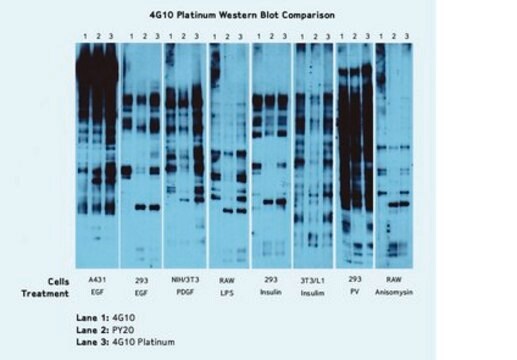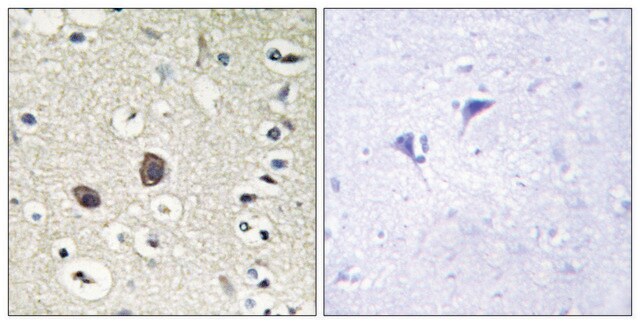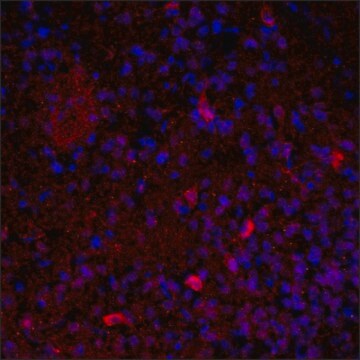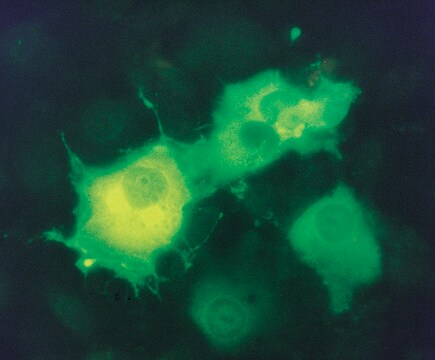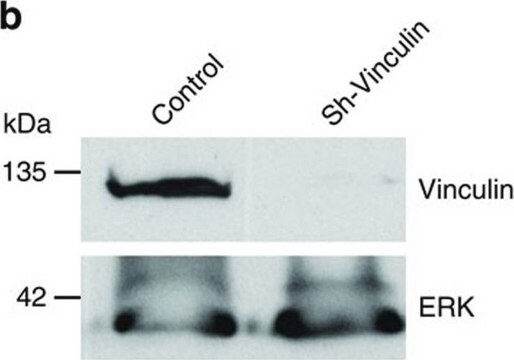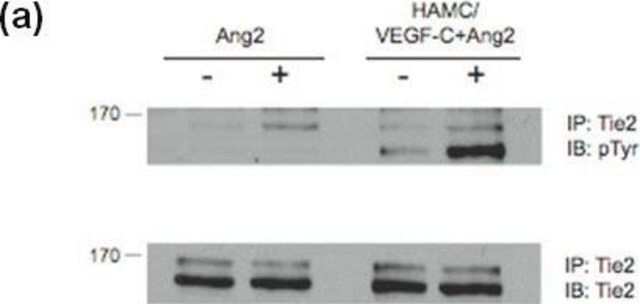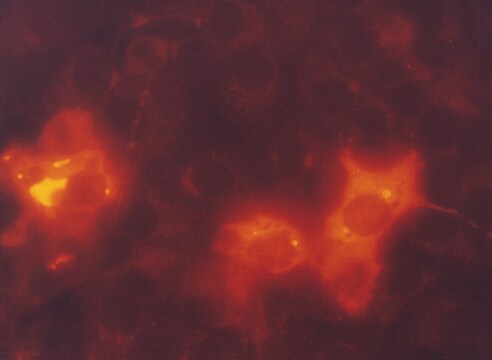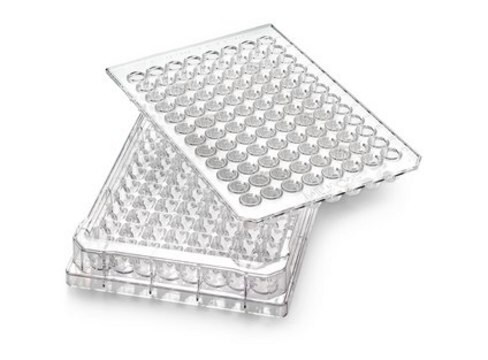05-584
Anti-Tie2/TEK Antibody, clone Ab33
clone Ab33, Upstate®, from mouse
Sinônimo(s):
CD202b antigen, TEK tyrosine kinase, endothelial, Tunica interna endothelial cell kinase, Tyrosine-protein kinase receptor TEK, Tyrosine-protein kinase receptor TIE-2, p140 TEK, soluble TIE2 variant 1, soluble TIE2 variant 2, venous malformations, multip
About This Item
Produtos recomendados
fonte biológica
mouse
Nível de qualidade
forma do anticorpo
purified immunoglobulin
tipo de produto de anticorpo
primary antibodies
clone
Ab33, monoclonal
reatividade de espécies
human, rat, pig, mouse
fabricante/nome comercial
Upstate®
técnica(s)
immunohistochemistry: suitable
immunoprecipitation (IP): suitable
western blot: suitable
Isotipo
IgG1κ
nº de adesão NCBI
nº de adesão UniProt
Condições de expedição
wet ice
modificação pós-traducional do alvo
unmodified
Informações sobre genes
human ... TEK(7010)
Categorias relacionadas
Descrição geral
Especificidade
Imunogênio
Aplicação
Immunohistochemistry: Reported to detect Tie2/TEK in frozen, Triton-treated sections.
This antibody is not suitable for paraffin-embedded sections.
Qualidade
Western Blot Analysis: 0.2-1 μg/mL of this antibody detected Tie2/TEK in RIPA lysates from HUVEC cells.
Descrição-alvo
forma física
Outras notas
Informações legais
Não está encontrando o produto certo?
Experimente o nosso Ferramenta de seleção de produtos.
recomendado
Código de classe de armazenamento
10 - Combustible liquids
Classe de risco de água (WGK)
WGK 1
Certificados de análise (COA)
Busque Certificados de análise (COA) digitando o Número do Lote do produto. Os números de lote e remessa podem ser encontrados no rótulo de um produto após a palavra “Lot” ou “Batch”.
Já possui este produto?
Encontre a documentação dos produtos que você adquiriu recentemente na biblioteca de documentos.
Nossa equipe de cientistas tem experiência em todas as áreas de pesquisa, incluindo Life Sciences, ciência de materiais, síntese química, cromatografia, química analítica e muitas outras.
Entre em contato com a assistência técnica